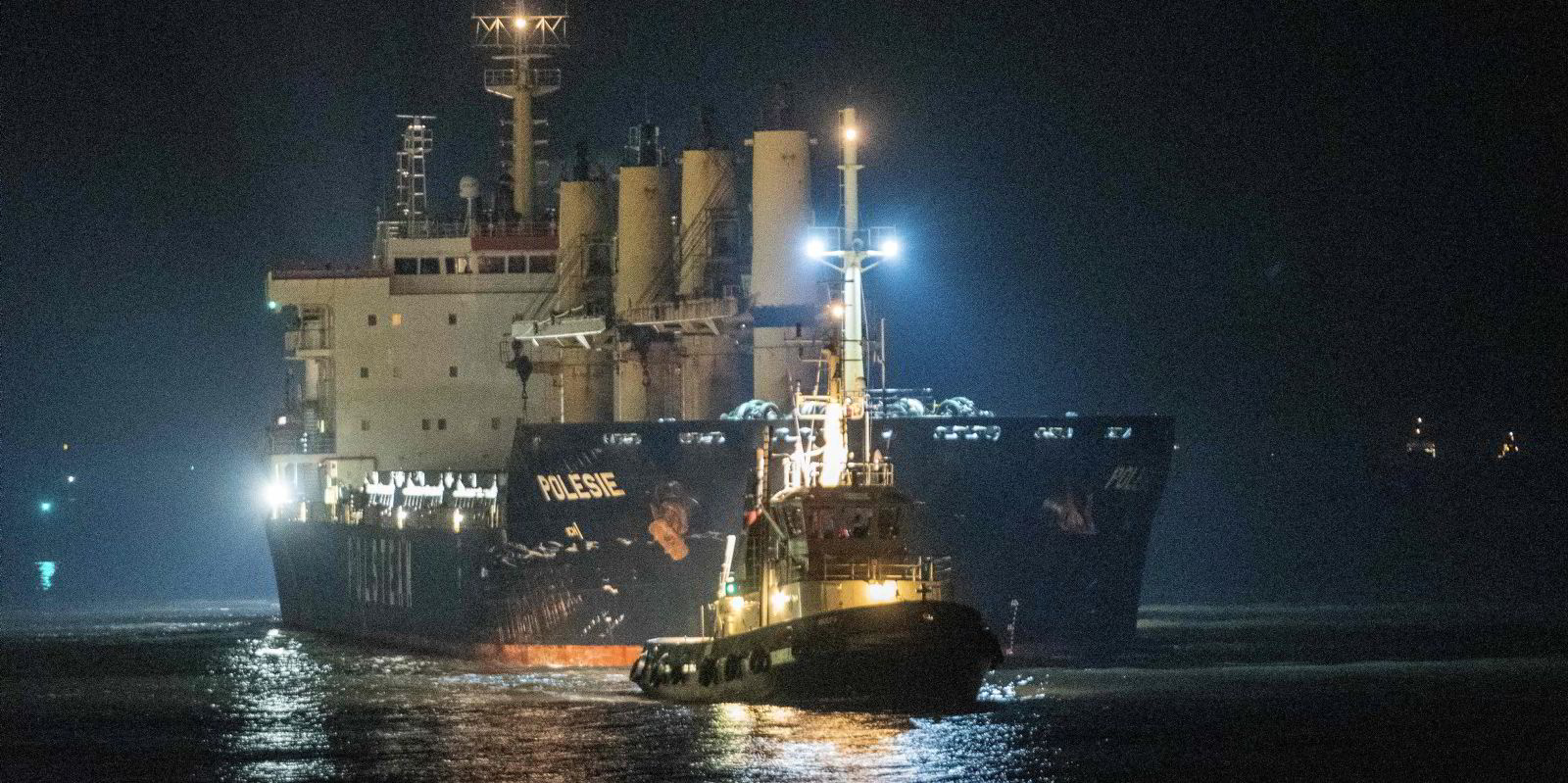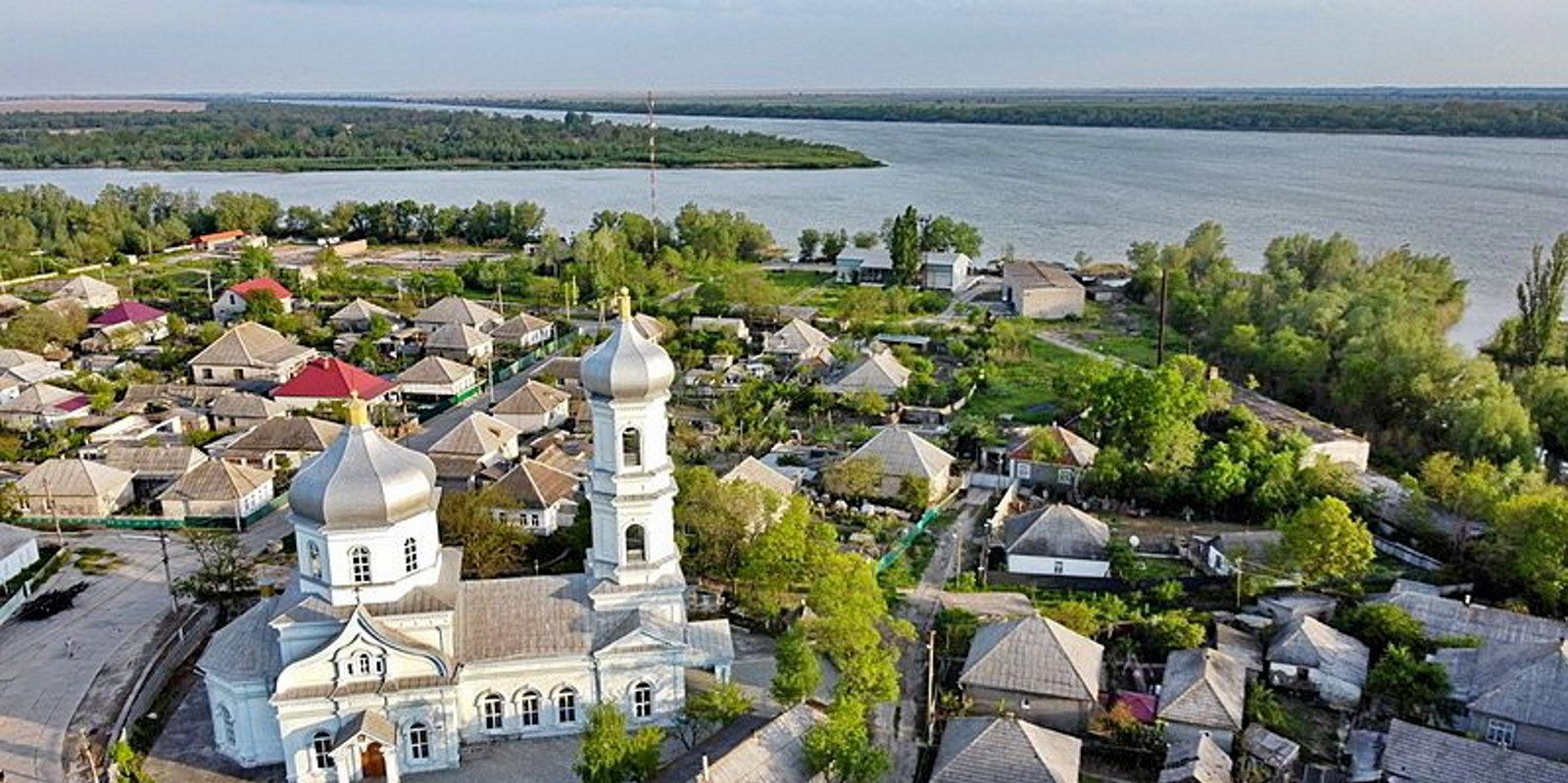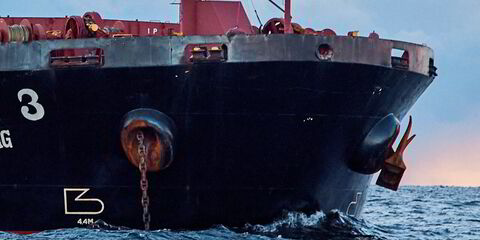The death toll from a ship collision in the North Sea early on Tuesday has reached five, as German authorities gave up on four missing crew members of the 3,400-dwt Verity (built 2001).
More than 20 hours after the sinking, there was no more hope to find any of them alive, said Robby Renner, head of operations in the case for Germany’s Central Command for Maritime Emergencies.
Adverse weather conditions made it impossible for divers to get inside the Verity, which lies in water about 30 metres deep.
A fifth victim was picked up dead from the sea a few hours after the UK-flagged ship crashed into the 38,100-dwt handysize Polesie (built 2009).
Two seafarers from the Verity survived and are in a German hospital. Their lives are not in danger. German authorities did not make any statements on the nationality of the victims.
The Polesie had 22 crew members on board. None of them came to harm and they were all aboard the vessel, which sailed under its own power to Cuxhaven, Germany.
German authorities are now pondering how they can remove the fuel trapped in the Verity to avoid an environmental disaster.
According to German state TV, some liquid substances have already leaked from the vessel into the sea but there are still about 130 cubic metres of fuel on board.
According to Christian Meyer, the environment minister of the German state of Niedersachsen, the ship seems to be in one piece at the bottom of the sea.
Bad history
Investigations are ongoing into the causes of the incident, which occurred at about 5am local time, 12 nautical miles (22 km) south-west of Helgoland and 17 nautical miles north-east of Langeoog Island.
The Verity is listed under the ownership of UK-based Casper Chartering. It had been underway from Bremen, Germany, to Immingham in the UK.
The Polsteam-operated Polesie was sailing from Hamburg in Germany to La Coruna, Spain.
Managers at both Polsteam and Casper Chartering were unavailable for comment and did not post any statement on their websites.
Casper Chartering acquired the Verity in February 2022, crediting manager Faversham Ships for support and cooperation in the deal.
Faversham-managed ships grounded twice in the past, once in 2013 and then in 2018. TradeWinds reported that the ships’ chief officers had fallen asleep on the watch or were ‘overwhelmed’ by the situation.
Faversham issued circulars after both cases, requiring crews to use lookouts and watch alarm systems during darkness, as well as urging them to stick to onboard procedures.
As for Polsteam, one of its vessels collided with a Greek-controlled handysize in South America six years ago. Another was grounded in the St Lawrence River in 2015. No pollution or injuries were caused in both cases.





